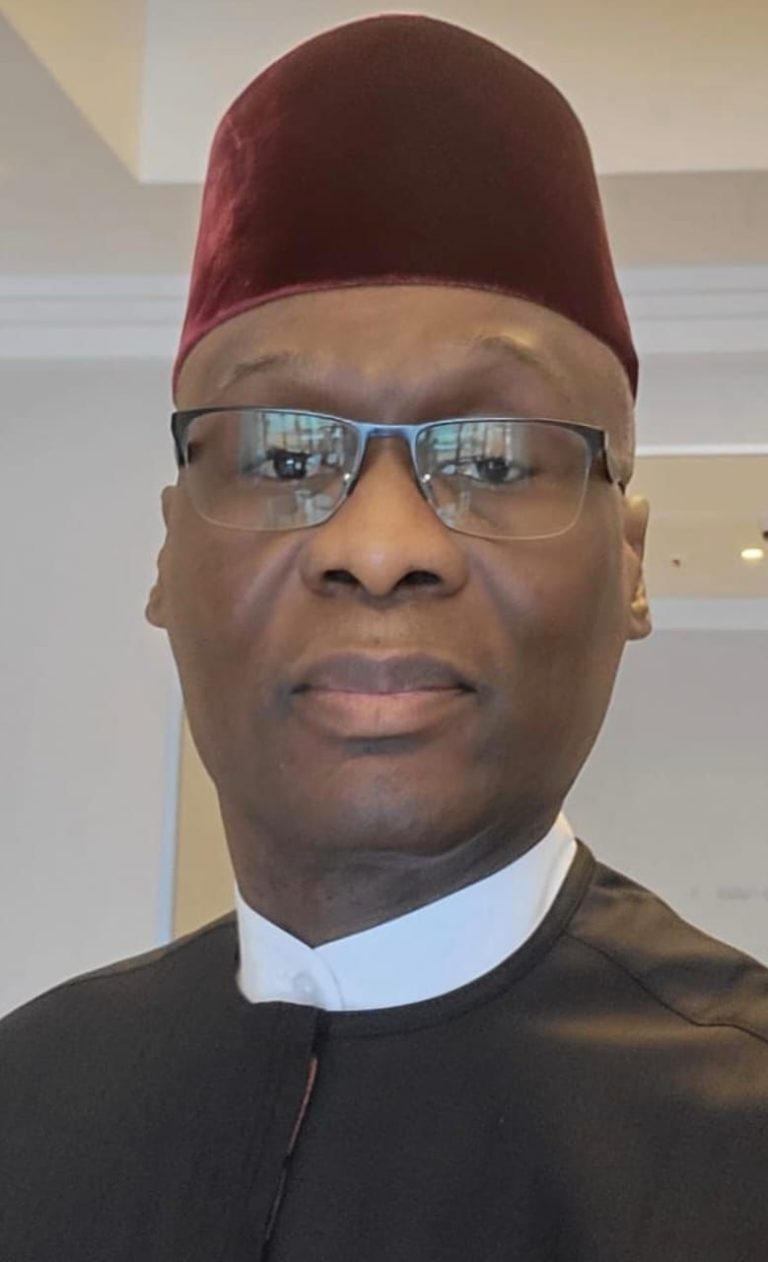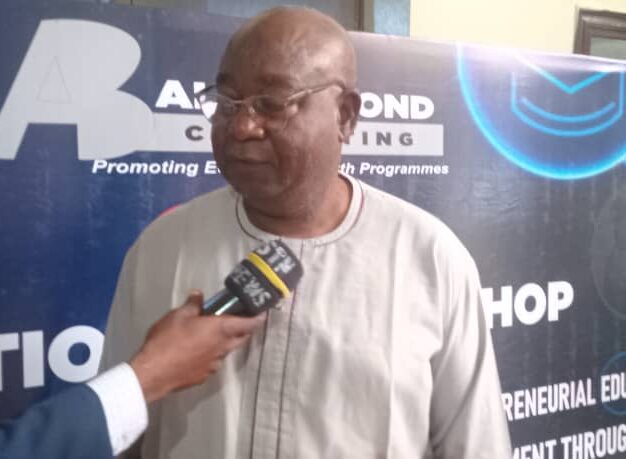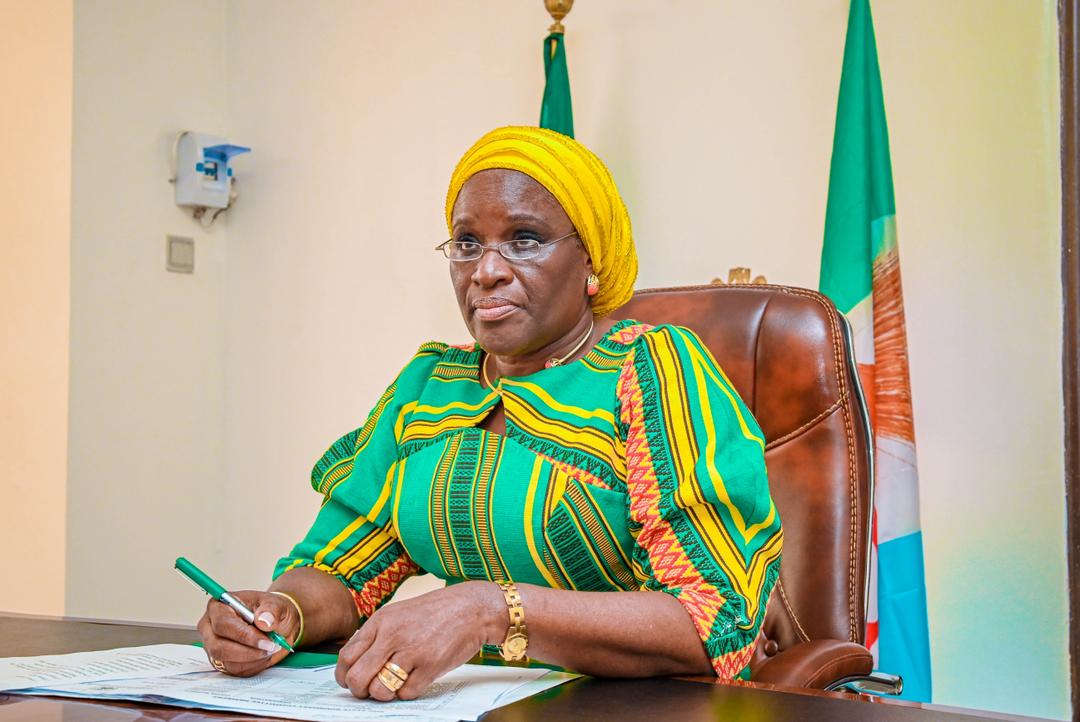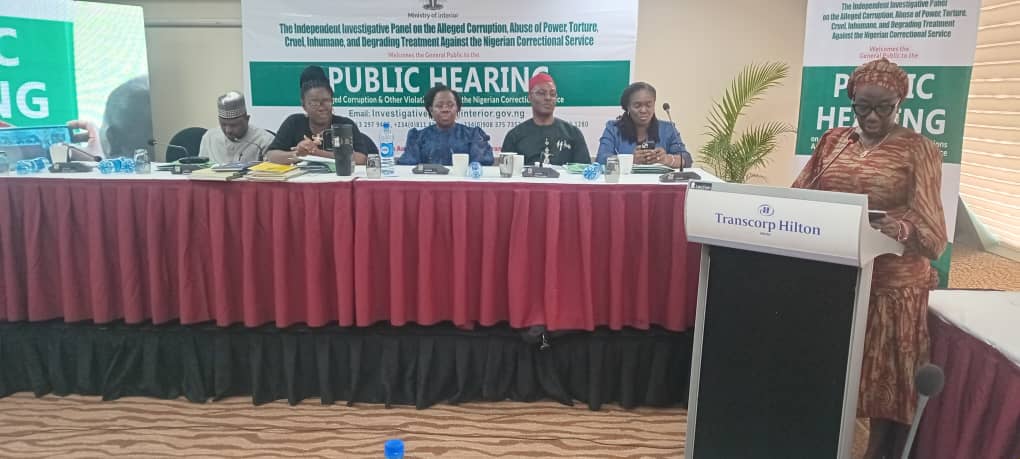By: Goodluck E. Adubazi, Abuja.
Dr. Babangida Ruma, Technical Assistant to the Katsina State Governor on Enterprise Development, has called on Nigerian youths, especially university students, to embrace entrepreneurial thinking and skill acquisition as a sustainable path to financial independence. He made this statement on Thursday during the second day of the National Workshop on Creating a New Model for Dynamic Growth Through Entrepreneurial Education, held in Abuja.
The event, organized by Allied Bond Consulting in collaboration with PIFS Conferences and Seminars, brought together stakeholders, experts, and youth advocates to promote entrepreneurship among students.
Sharing a compelling real-life success story during an interactive session with journalists, Dr. Ruma, who also lectures in Information Technology and Entrepreneurship, recounted how one of his students transformed her life through a small but strategic business initiative.

“In her first year, she had no business plan, no capital—just interest and a cooking skill,” Dr. Ruma explained. “She started small, creating WhatsApp groups and charging N1,000 per participant to teach cooking classes. With over 1,000 participants across multiple groups, she earned over N1 million.”
According to Dr. Ruma, the student has since grown her business into one of the leading restaurants in Katsina State and is currently working on launching a culinary academy to train others.
He emphasized that the major challenge facing youths in Nigeria is not a lack of job opportunities, but a lack of creativity and practical thinking.
“There are no jobs, that’s a fact,” he said. “But in developed countries like the US, China, or Dubai, very few people work for the government. The real impact comes from those who innovate and build in the private sector. It’s not about needing millions to start; it’s about using what you have.”

Dr. Ruma advised students to leverage simple tools and platforms like WhatsApp to create income-generating ventures with little or no start-up capital. He stressed that basic skills, not money, are the most valuable assets for young entrepreneurs.
“You can charge as little as N1,500 for a service. If 500 people pay that, you already have N750,000, enough to start something meaningful,” he said. “Even if someone gives you N1 billion, without the skill to multiply it, it will vanish.”
“We’re Here to Change the Narrative”: Dr. Joe Anyor Advocates Practical Entrepreneurship Training at National Workshop
The Chairman of Allied Bond Consulting and PIFS Conferences and Seminars, Dr. Joe Anyor, has called for a paradigm shift in Nigeria’s approach to entrepreneurship education, emphasizing practical training over theoretical knowledge. He made this known during the ongoing National Entrepreneurship Development Workshop in Abuja.
Dr. Anyor, who also delivered the keynote address at the event, stressed that the time had come to move beyond conventional certificate-based education and embrace skill-based, solution-driven learning, a concept he dubbed “Sabi-tificate.”
“This is not just another workshop where we talk and go back to business as usual,” he said. “We are here to change the narrative. We are building a new template—one that will empower students to either get meaningful placement or start their own businesses right after graduation.”
According to him, the workshop is designed to equip lecturers and facilitators from various universities with practical entrepreneurial skills they can take back to their institutions, transforming them into trainers of trainers.
Dr. Anyor also shared the philosophy behind his name, using it as a metaphor for the mission of the program: “I often say my name, Anyor, means ‘there is more.’ And that is what we are offering Nigeria—more. More skills, more empowerment, more opportunities.”
Reflecting on his years of work in consulting and human capital development, Dr. Anyor highlighted that the most significant achievements are not always quantifiable.
“For me, having just one person attend my program is an achievement,” he said. “Like the great teachers, Jesus Christ and Prophet Muhammad (peace be upon them), who changed the world through a handful of people, I believe even one trained individual can become a catalyst for nationwide change.”
Dr. Anyor also praised the Honourable Minister of Education, who made an unexpected but punctual appearance at the workshop.
“I was amazed. He came without a security parade or fanfare, just like every other participant. That alone was a morale booster,” he noted, also acknowledging the presence of representatives from the National Universities Commission (NUC).
Dr. Anyor concluded with a clear message for students and university administrators across the country:
“We must move past the era of distributing certificates. Let us stop giving people fish—teach them how to fish. That is the essence of this training.”
Earlier, Dr. Adams Tijani, One of the Facilitators at the National Workshop, Advocates Practical, Entrepreneurial Education in Nigerian Universities
Dr. Adams Ayoade Tijani, a lecturer and extension specialist at the National Agricultural Extension and Research Liaison Services (NAERLS), Ahmadu Bello University (ABU), has called for a transformation in the way entrepreneurial education is delivered in Nigerian universities.
Speaking at a recent presentation on “Developing Entrepreneurial Educators in Nigeria: The Training, Tools, and Mindset,” Dr. Tijani emphasized the urgent need to reorient the educational system towards problem-solving, innovation, and practical skill acquisition.
“Our students must be trained not just to pass exams, but to identify societal problems within their fields and develop sustainable solutions,” Dr. Tijani said. “To achieve this, educators themselves must first be equipped with the relevant skills, tools, and mindset necessary to train students to become job creators rather than job seekers.”
Dr. Tijani lamented the current disconnect between academia and industry, noting that while thousands of graduates are produced annually, many lack the practical skills required in the job market. He stressed that entrepreneurial educators must undergo continuous training to remain effective and relevant.
“Degrees alone are no longer enough. We need to ensure students graduate with industry-relevant competencies. For example, a pharmacy graduate who cannot formulate basic drugs is of little practical value,” he noted.
Challenging the notion that some academic courses are not marketable, Dr. Tijani argued that every field has potential for commercialization if linked to local culture and societal needs. “There’s no such thing as an unmarketable course. Even indigenous knowledge can be turned into viable enterprise opportunities if properly harnessed,” he said.
Highlighting the importance of hands-on experience, Dr. Tijani stressed the need for stronger links between universities and industries. He urged institutions to prioritize practical training over excessive theoretical instruction.
“In Nigeria, practical knowledge is key. Students must be exposed to real-world applications of what they learn in class. Artisans like welders and plumbers often demonstrate more applicable skills than some graduates because they’ve been trained in the field,” he explained.
Additionally, Expert Advocates Sustainable Industrial Hubs and Student Entrepreneurship to Tackle Graduate Unemployment
Dr. Rex E. Ufomba, Director of Entrepreneurship and Skills Development at Spiritan University, Nneochi, Abia State, has called for the establishment of sustainable industrial hubs and hands-on entrepreneurial education in Nigerian universities to address the rising challenge of graduate unemployment.
Dr. Ufomba, who also serves as the Chairman of the Association of Directors of Entrepreneurship Development Centres in Nigerian Universities (South-East Zone), made the call on Day 2 of a two-day national workshop held at Merit House, Maitama, Abuja. The workshop, themed “Creating a New Model for Dynamic Growth Through Entrepreneurial Education,” was organized by Allied Bond Consulting in partnership with PIFS Conferences and Seminars.
Speaking to journalists after his presentation, Dr. Ufomba highlighted the unsustainability of many existing industrial and entrepreneurial ecosystems within Nigerian higher institutions.
“Many universities have infrastructure, projects, machines, and buildings, but they lack sustainability. What we are proposing is a model to help higher education institutions develop a sustainable ecosystem that supports industrial hubs,” he explained.
He emphasized that the current educational system focuses heavily on theoretical knowledge, leaving graduates ill-equipped for practical and innovative ventures.
“Unemployability among our graduates is a major challenge. The core issue lies in the fact that students are exposed mostly to theory. Entrepreneurship education should go beyond the classroom, students should be creating ventures even while still in school,” Dr. Ufomba said.
He advocated for a stronger focus on “studentpreneurship” a model where students create and manage businesses as part of their academic experience. This approach, he said, would not only make them more employable but also turn them into job creators.
“We must move from just using exams and tests as assessment tools. Let’s assess students based on their ability to create impact and build ventures. This will enhance their practical skills and entrepreneurial mindset, which are critical for success in today’s economy.”
The workshop gathered entrepreneurship educators and policy advocates from across the country to brainstorm innovative solutions for integrating entrepreneurship into Nigeria’s higher education curriculum.















